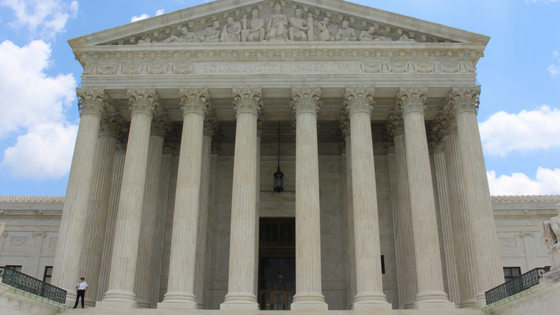The Supreme Court today granted a petition to hear arguments in Duguid v. Facebook, a case that will seek to settle once and for all how an automated telephone dialing system is defined under the Telephone Consumer Protection Act.
The decision comes just three days after the Supreme Court ruled in Barr v. American Association of Political Consultants, deciding that an exemption from the TCPA for the use of autodialers when collecting on debts owed to or guaranteed by the federal government is unconstitutional.
The Supreme Court will not hear arguments in the case until its next term, which begins in October.
In this case, the plaintiff sued Facebook after he received text messages regarding suspicious attempts to access his account with the social media giant. The Ninth Circuit Court of Appeals ruled against Facebook, largely using the definition of an ATDS that it set in Marks v. Crunch San Diego. Under that definition, an ATDS is any device that has the capacity to store numbers to be called, which the groups argue “significantly alters congressional language” of the TCPA.
The issue at hand is how to parse a sentence in the TCPA that defines an automated telephone dialing system. In the TCPA, an ATDS is defined as “equipment which has the capacity to store or produce telephone numbers to be called, using a random or sequential number generator; and to dial such numbers.” The source of the conflict is whether “using a random or sequential number generator” applies to equipment that “stores” or “produces” telephone numbers or applies to equipment that does both.
The petition for the Supreme Court to hear the case was originally filed last October. Most of the credit and collection industry has lined up behind Facebook in seeking to have the Supreme Court adopt a less robust definition, one that has been adopted by the Eleventh and Seventh Circuit Courts of Appeals. The Second Circuit and Ninth Circuit Courts of Appeals have ruled that an ATDS is defined as technology that has “the “capacity . . . to store or produce telephone numbers to be called, using a random or sequential number generator.”
The Seventh and Eleventh Circuit, for example, have determined that technology that does not have the capacity to generate random or sequential numbers does not meet the definition of an automated telephone dialing system under the TCPA.
The two questions that Duguid is seeking to have the Supreme Court answer are:
- Whether the TCPA’s prohibition on calls made using an ATDS is an unconstitutional restriction of speech, and if so whether the proper remedy is to broaden the prohibition to abridge more speech.
- Whether the definition of ATDS in the TCPA encompasses any device that can “store” and “automatically dial” telephone numbers, even if the device does not “us[e] a random or sequential number generator.”
The Supreme Court granted the petition in order to answer the second question and resolve the Circuit split.








